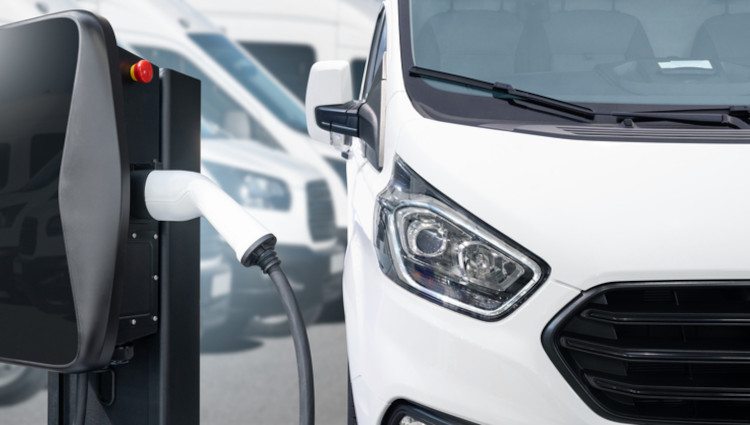More and more Rivervale customers have asked the question about moving to electric vehicles as they look to reduce their carbon footprint, whether they ultimately decide to do so or not.
While we are keen to support any move to be kinder to the environment, and there is a wide selection of electric vehicles on the market, we need decision makers to be aware that there are a few important factors to consider before purchasing an electric minibus or vehicle.
The UK’s charging infrastructure
Although the situation is improving year-on-year, the UK has not got the best infrastructure for electric charging when out and about. Unlike diesel or petrol, where any vehicle can use any pump and fill up in minutes; electric is different:
The type of battery your minibus has, and the speed of the charging station, makes a vast difference to the time it takes to charge your vehicle. Therefore, it is not just a question of when you need to recharge but it is factoring in, where and how long it will take and more crucially what to do with your pupils while you wait.
Several of our customers report that recharging of electric vehicles as a way of ensuring their drivers are having a significant break from driving, to avoid fatigue, but this is not always convenient.
Overcoming Range Anxiety
Range anxiety, as it is commonly called, where there is a fear you will not be able to reach your destination can easily be overcome with planning. Most of our customers are making frequent local trips as opposed to longer journeys, so they never too far away from their known charging stations.
Ranges on electric minibuses are quite significant. The Ford e-Transit 15-seat minibus will easily give you a 150-mile range (from 166-196 miles dependent on the weight you are carrying, the roads you are driving, and the electrics used inside the vehicle). So, you could easily get from London to Cardiff, or Doncaster, before you must stop to charge.
You can read more about ranges and EV charging in our EV Charging Guide
Costs and savings
There is no denying that an electric minibus will be more expensive to buy or lease than a diesel. However, there are cost savings to be made on fuel and maintenance. Even with energy prices as they, electric charging is significantly cheaper than refuelling with petrol or diesel. If you charge at your home or your workplace, they are even cheaper than using commercial networks. Installing a smart charger means that you will be able to take advantage of lower energy tariffs at nighttime, further reducing the costs.
You can also expect a reduction of up to 40% on the costs of regular servicing of an electric vehicle. With fewer moving parts than a diesel or petrol equivalent services typically cost less**.
Your school may also be able to benefit from The Workplace Charging Scheme (WCS). A voucher-based scheme that provides eligible applicants with support towards the upfront costs of the purchase and installation of electric vehicle (EV) charge points and can be used in conjunction with EV infrastructure grant for staff and fleets.
The WCS is open to businesses, charities and public sector organisations that meet the applicant and site eligibility criteria.
The grant covers up to 75% of the total costs of the purchase and installation of EV charge points (inclusive of VAT), capped at a maximum of £350 per socket and 40 sockets across all sites per applicant.
By switching to an electric vehicle, you will also likely meet the criteria for a 100% discount on the Congestion Charge in London and other cities until at least 24 December 2025. You need to register your vehicle to receive the discount and pay the congestion charge until your application is approved.
Drivers
Having a charging point at your school for your minibus or other electric vehicles can prove to be hugely cost saving, but this might be an issue if staff take the minibuses home at night because of early morning starts, where they may not have a charger - this is another factor to consider.
It is worth noting that all electric minibuses over 9 seats will require D1 entitlement to drive because they are over 3.5 tonnes. This might be an issue for schools without professional drivers or younger staff members. However, there are options for 8- and 9-seater electric cars/minibuses and smaller vans that can be driven on a standard car licence and these are proving to be a popular option as a step towards updating exiting fleets of different sized vehicles.
Commitment to sustainability
Nearly 66 per cent of respondents to a National Governance Association survey this year said leaders had taken “practical action in their school or trust on environmental sustainability”. As energy costs rise the incentive to do so can only be increasing. Electric vehicles and having electric charging stations available on campus not only demonstrates a school’s commitment to improving the environment but allows it staff, older pupils, and their families to commit to electric vehicles knowing there are charging facilities available. This move towards reducing carbon emissions, and supporting the community to do so too has proved to be a very attractive differentiator for independent schools.
If you have any questions abour electric minibuses, or what a quote to lease or purchase looks like then please give our friendly team a call on 01869 253744 or email us at minibus@rivervale.co.uk.

